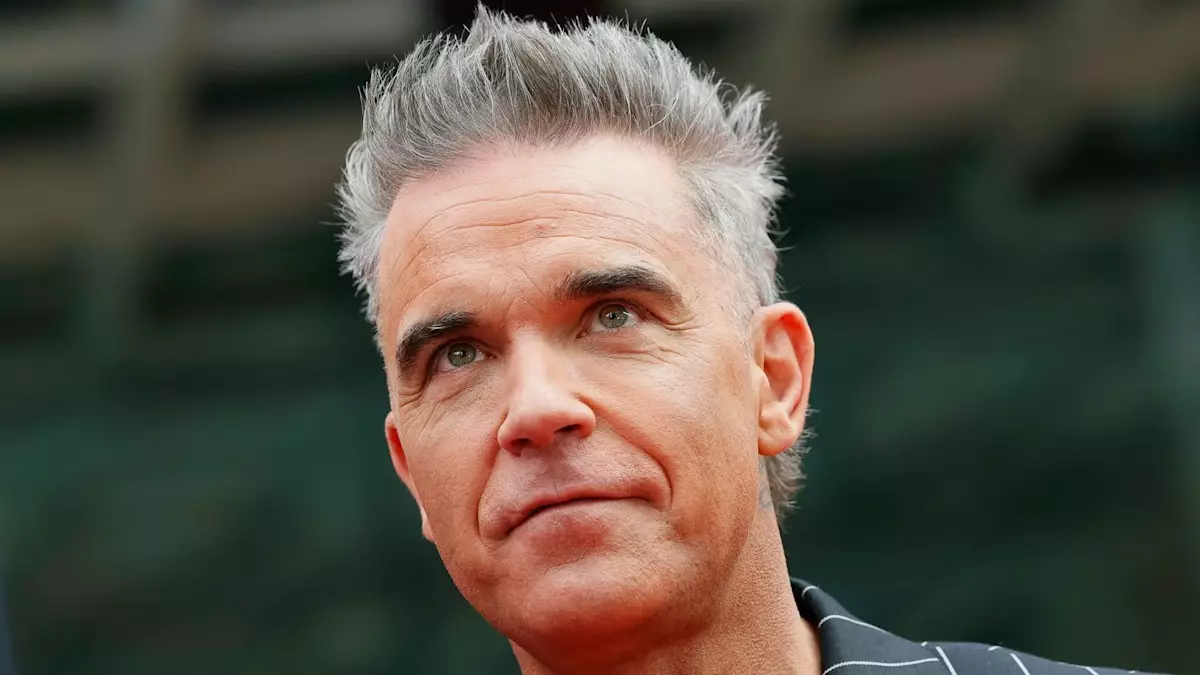Robbie Williams, the iconic British singer famous for his powerhouse anthems like “Angels,” recently took to Instagram to address a personal and emotional topic: the phenomenon he describes as “boy band dysphoria.” This revelation comes as part of a broader dialogue stirred by the series titled *Boybands Forever*, which examines the tumultuous journeys of iconic boy bands including his former group, Take That. Williams’s post highlights not only his personal struggles but also serves as a reflection on the collective hardships experienced by his bandmates and others in the industry.
The Instagram post, rich in introspection, was triggered by assertions made by his former manager, Nigel, who contributed to the series. Williams’s response was layered, tackling the impacts of fame and the invisible struggles of addiction that haunted him and his peers. He tackled the complexities of addiction head-on, transforming a moment of public discussion into a personal narrative that resonated with many.
In his open statement, Williams penned a poignant disclaimer regarding his past drug use, asserting, “My drug taking was never your fault.” This phrase encapsulates a broader issue; the influence of the entertainment industry often creates an environment wherein young stars are caught in a whirlwind of pressure and public scrutiny. Williams skillfully uses his platform to shed light on this toxic dynamic, illustrating how external forces contribute to internal chaos.
He elaborated on the psychological effects of being a member of a boy band, a phenomenon that he argues leads to a “pattern” of struggles among its members. These issues often manifest as lifelong battles with addiction, depression, and the lingering scars of lost youth. While some may find their way to recovery through understanding and support, others, as Robbie poignantly notes, may remain trapped within the cycle of their past disappointments.
Williams’s openness does not merely serve to denounce Nigel’s comments but, more crucially, to advocate for empathy and understanding about addiction. He challenges viewers to consider the realities that come with public revelations, recognizing the necessity of validating the lived experiences of individuals grappling with their histories.
In his post, Williams lists the struggles of his former bandmates, highlighting their personal battles with addiction and mental health. Mark Owen’s fight with alcoholism, and Gary Barlow’s struggles with eating disorders, are not just names on a list; they are reminders of the heavy toll that fame can exact. Williams draws attention to Jason Orange, who, as noted, could not bear the pain of association with their collective past—a powerful statement on the enduring impact of their experiences as a group.
Williams also critiques Nigel’s dismissal of his journey, stating, “It was okay to not understand.” This realization is particularly revolutionary; it echoes the sentiments of countless individuals navigating psychological and emotional landscapes that remain misunderstood or trivialized by those around them. It highlights a necessary shift in the conversation surrounding addiction, emphasizing that acknowledgment and support are paramount in the path to healing.
His reflections extend beyond pain, intertwining themes of resilience and recovery, as exemplified within his own life story. Williams’s journey through rehab in 2007 remains a cornerstone of his narrative, a testament to the uphill battle faced by many struggling with addiction. Despite the turmoil, Robbie has emerged not only as a survivor but as a father to four children—Teddy, Charlie, Coco, and Beau—with his wife, Ayda Field. The couple’s journey, marked by separation and eventually rekindled love, reinforces the idea that healing is not linear but rather a path punctuated by setbacks and triumphs.
Ultimately, Williams’s candid post serves a dual purpose: it acts as a personal therapy session while simultaneously instigating a much-needed dialogue on the darker side of fame within the music industry. Through vulnerability, he not only reclaims his narrative but also extends a lifeline to others trapped in similar struggles, reminding us all that healing is possible when we dare to openly confront our pasts.

